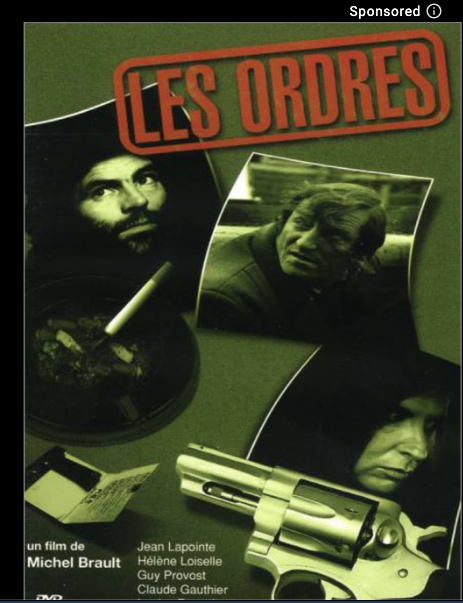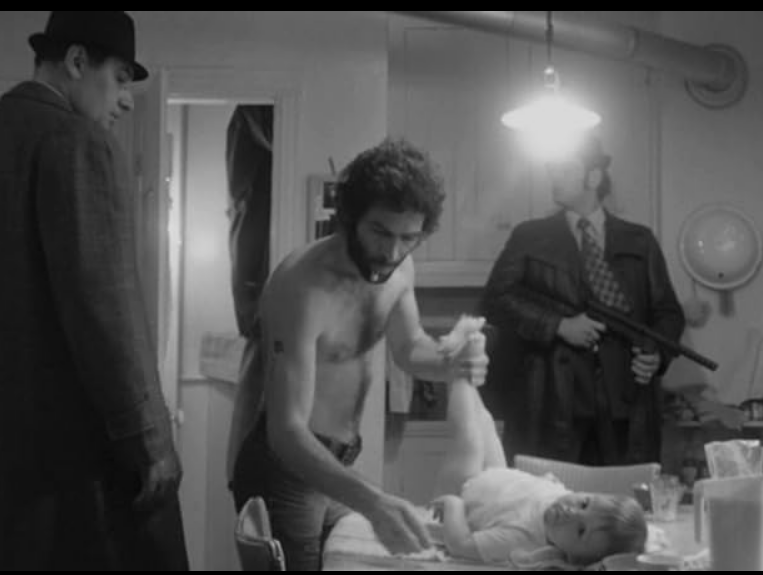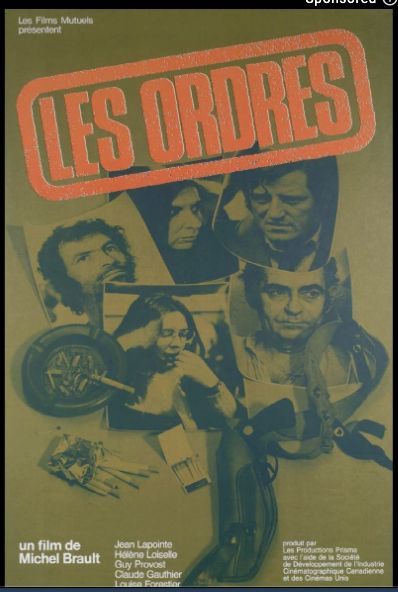Les ordres (1974) Orders
IMDb meta-data is runtime of 1 hour and 49 minutes, rated 8.1 by 1,100 cinematizens.
Genre: docudrama.
DNA: Québécois.
Verdict: Disquieting.
Tagline: Why?

‘The October Crisis of 1970,’ seen through the eyes of five innocent by-standers who were caught in the tsunami response: one is a union shop steward, his stay-at-home wife, a single father on the dole with custody of two small children, a woman university student, and a male doctor from a health clinic, three men and two women. They along with 500 others were seized and incarcerated without warrant, explanation, trial, or common courtesy: hand cuffed, stripped, strip-searched including ahem…, and verbally and physically abused as they were imprisoned. No indignity was omitted. As far as the police and warders knew, these were dangerous and violent extremists, despite their appearance.
The details of induction into life in jail are many, and hard to watch, especially knowing that none of the five had anything to do with the events. (Nor did any of the others in the five hundred.) The only thing they have in common was being Québécois, but then so are their jailers.
While the presentation is low-key and matter of fact, it cannot but remind viewers of Germans rounding up Jews or Latin American dictators sweeping up real or imagined enemies for one-way trips. They were processed in the underground carpark of football stadium in that best South American style.
It can’t happen (t)here! But it did, and it might again.

Their homes were torn apart in the search for… no one seems to know what, and that ignorance made the searches even more furious and destructive, while young children were left without a parent as the police hauled away mom or dad. ‘Not our problem,’ says one officer. (Neighbours stepped in.)
The five were held from six to twenty days, and put under conspicuous surveillance after release. None of the 500 were charged with anything to do with the kidnapping and murder of the October Crisis. Though the extra-legal searches did turn up evidence of other crimes, like unpaid traffic tickets, overdue library books, marijuana stashes, and other such high crimes. ‘Apprended insurrection’ not! Those were the legal magic words used to justify the imposition of martial lawlessness.
The question is why these five and these five hundred? What list(s) were they on? The film gives no answer.
There are extensive entries on the Crisis in the Canadian Encyclopaedia, but these are carefully bland, offering no insight into that question. The literature I could identify concerns the big picture and not these human faces.
Those handcuffed and bundled away often asked: ‘Why me?’ On the rare occasions when they were answered the response was: ‘Les ordres.’ Makes you wonder whether your own name is on someone’s list.
The direction and acting are low key throughout, and the telling measured and mesmerising. It is more a documentary than a drama in presentation.

